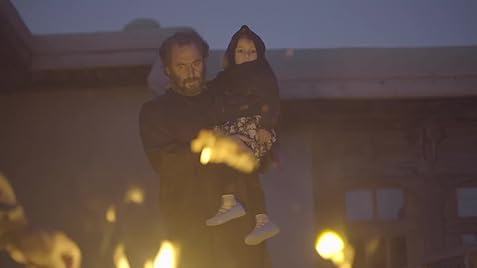Submit your Screenplay to the Festival TODAY
Director:
Writer:
FIRST REFORMED is the name of an old church built in 1767 that is still standing in the film of the same name. The film’s subject is Reverend Toller (Ethan Hawke), a good-hearted God-fearing man but one who questions his faith after the death of his son, that also resulted in his marriage break-up. Toller is lonely. Toller is also ill with a cancerous tumour.
The film is directed by Paul Schrader, known for his serious films. His best movies include BLUE COLLAR, CAT PEOPLE and AFFLICTION, the latter film winning James Coburn the Best Supporting Actor Oscar. FIRST REFORMED shares a bit of the scarce but biting humour in AFFLICTION, in the form of Cedric the Entertainer playing the supporting role of Pastor Jeffers. But Schrader is dead set on the subject at hand – the relevance of religion in today’s world. Jeffers offers advice to Toller in a sit-down session in his office: “You are always in the garden. Jesus was never always in the garden. He was sometimes at the market place or on the mountain. He was never in the garden on his knees spitting blood.” This is the film’s laugh-out loud yet serious segment. Unlike the recent film DISOBEDIENCE with an Orthodox Jews setting, this film is respectful of its religious setting.
The story unfolds from the appearance of Mary (Amanda Seyfried). She wants the reverend to speak to her husband, Michael (Philip Ettinger) who wants to destroy the child that Mary is now bearing. This is when Toller reveals (to the husband and the audience) that he is a man with baggage himself. His family have all been in the military. By tradition, his son follows by enlisting, against the wishes of his mother. The son is killed 6 months later in Iraq. Toller’s wife and him are now separated with Toller now serving in the church. In mid-film, a tragedy occurs that Toller blames himself for, wondering what he could have done different.
Toller keeps a journal, writing by hand his thoughts and deeds every 24 hours. The words serve two purposes. Besides recounting the events that have occurred stressing the importance of each, they also reflect the intimate thoughts of the writer, how he feels as he goes on, not only with the events but the daily routines. Toller intends the diary be destroyed after a year of writing, done as an experiment, which makes the exercise all the more curious.
The Reverend Toller (age 46) is revealed to be a meticulous man from the very first scene. He insists on fixing the leaking faucet in the men’s toilet on his own, without having to spend unnecessary money. He can be an angry man an a timid one intimidated by those above him.
Toller is a character waiting to explode, just as the Coburn character exploded in Schrader’s best film since AFFLICTION. Hawke delivers a dead serious performance, one of the best of his career. These are just two reasons making FIRST REFORMED a worthwhile film to watch.














